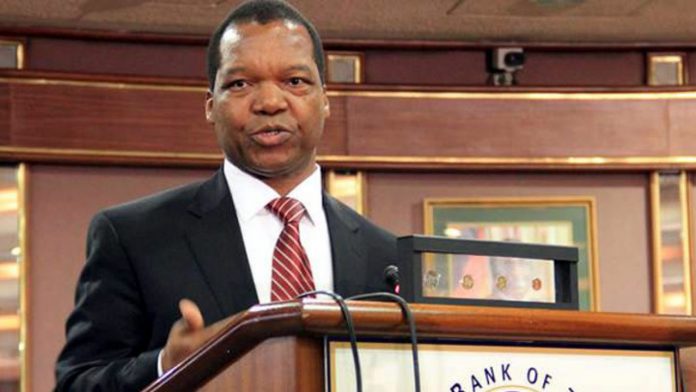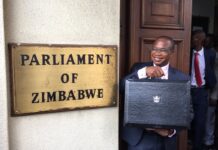Reason Razao
The Reserve Bank of Zimbabwe has assured the public that the introduction of ZW$50 bank note will not trigger inflation but rather augment the current stock of bills in circulation.
Governor John Mangudya in his Monetary Policy Statement presented new fiscal measure that are aimed at stabilising price and financial system.
Mangudya said as part of measures to enable the public to access and make cash payments, the central bank will soon inject the ZW$50 bank note into circulation.
“The Bank reiterates that banknotes, new or old, do not cause inflation in an economy since they do not increase money supply. Cash payments are an alternative to other methods of transacting and do not constitute money creation,” said Mangudya.
He added that price dynamics were influenced by the level of money supply in an economy as opposed to its composition hence the bank’s firm commitment to keep the level of money supply growth under control through its conservative or hawkish monetary targeting framework.
Under the new fiscal measures, for the banking public, cash withdrawal limits have been increased to ZW$2 000 for individuals while the current limits on the mobile banking were left unchanged at $5 000 per transaction and an aggregate limit of $35 000 per week.
The RBZ aims to maintain and sustain the auction system through the 40% export surrender requirement, 20% domestic foreign exchange sales proceeds surrender requirement and 15% foreign exchange contribution from the fiscus.
The RBZ also hiked its policy rate to 40% from 35% as part of efforts to curb further inflation upwards.
“Maintaining the foreign exchange auction system remains paramount in anchoring inflation and maintaining price and financial system stability. The Bank shall continue refining the foreign exchange auction system taking into account market fundamentals as well as closely monitoring the utilisation of funds from the foreign exchange auction system and the economy at large,” said Mangudya.
The central bank chief said they were putting in place a definitive programme for accounting and expunging of foreign exchange obligations under the blocked funds and foreign exchange legacy-debt framework.
This framework will be designed to ensure that it is not inflationary and takes into account local and international audit requirements.
“Applications for qualification under this framework have been closed and the Bank and Government are at the stage of implementing resolution.”
The new measure will also aim at maintaining the status quo on the minimum capital requirements for banks and microfinance institutions.
“The Bank is encouraged by the capital preservation measures that the banking sector has put in place towards compliance with the minimum capital requirements effective 31 December 2021. The banking sector capital raising plans are based on organic growth, mergers, consolidations and fresh capital injections.”
There will also be strict monitoring that banking institutions comply with the Banking Regulations as stipulated in Statutory Instrument 65A of 2020.
The fiscal pronouncements also bring assurance that authorised dealers, banks and foreign exchange auction system participants comply with rules and regulations to curb abuse of the foreign exchange auction and safeguard it from being abused as a breeding ground for arbitrage opportunities.











